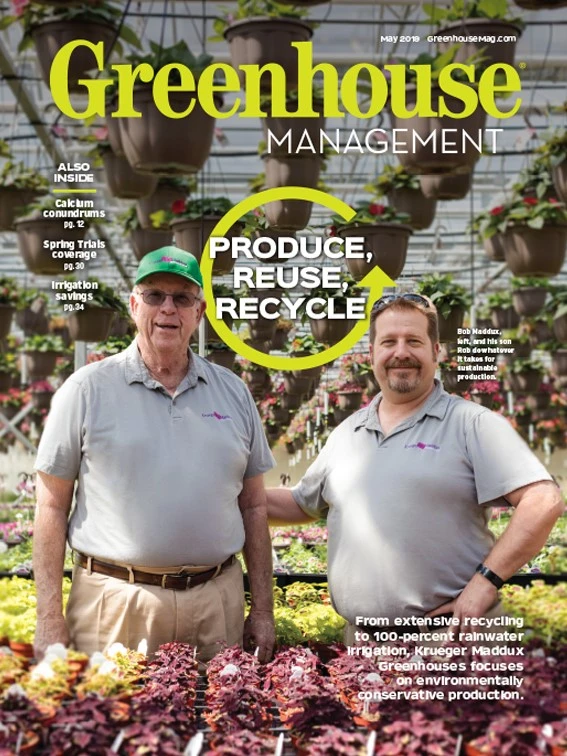
Greenhouse Management: With so many different insecticides on the market, how can a grower select the best solution?
Jake Doskocil: Growers have many tools in their toolbox, and each tool has its own unique purpose. Contact insecticides work really well on pests that feed on the plant surface, or for quick knockdown when pest populations get out of control. Systemic insecticides work best for pests that feed on the plant vascular system and hide out in small nooks and crannies. These cryptic pests can be more difficult to see and control. Products like Altus are best suited for these types of pests and provide growers with a systemic, non-neonicotinoid solution that offers both flexibility and selectivity.
Ornamentals growers cannot tolerate any damage and are always working to stay ahead before a pest population gets a foothold in their greenhouses. Preventative drench applications of Altus help growers start clean and finish clean, addressing hard-to-control piercing-sucking pests like whitefly and scale. In situations where pests get a foothold, foliar applications of Altus can provide quick feeding cessation and control with no restrictions on timing of application. This offers great utility for growers, especially near time of sale.
GM: What are some of the key trends affecting growers when it comes to insect control?
JD: Insect pressure never stops. As soon as growers feel like they’ve wrapped their arms around a problem, a new one comes up. This could mean new invasive species or pest populations that develop resistance to a particular active ingredient. The ever-evolving biological environment remains a constant pain point for growers.
On top of this, our industry is facing social and regulatory concerns. Growers have always been committed to not only delivering beautiful plants, but doing so in a way that meets consumers’ expectations. Products like Altus give growers a tool that meets some of these new demands for compatibility with honey bees, bumble bees and many beneficial arthropods.
GM: Where do you see the industry headed in terms of insecticide solutions and management?
JD: Digital technology is progressing at an exponentially fast pace that is affecting every facet of our lives. Ornamentals production is not immune to this change. Digitization and automation of tools will increase efficacy and efficiency of problem detection and diagnosis. Having information sooner allows growers to initiate a solution before the problem becomes widespread and more difficult to control. There will always be a human element when interpreting a situation, but technology will continue to increase our ability to efficiently diagnose and treat existing challenges and potentially even predict what growers could face next. In the coming years, pest control products will only become more selective, driving growers’ need for quality information in a short timeframe. I look forward to continuing our work toward innovation and helping to ensure that the right solutions are in place to meet these evolving needs.

Explore the May 2019 Issue
Check out more from this issue and find your next story to read.
Latest from Greenhouse Management
- Anthura acquires Bromelia assets from Corn. Bak in Netherlands
- Top 10 stories for National Poinsettia Day
- Langendoen Mechanical hosts open house to showcase new greenhouse build
- Conor Foy joins EHR's national sales team
- Pantone announces its 2026 Color of the Year
- Syngenta granted federal registration for Trefinti nematicide/fungicide in ornamental market
- A legacy of influence
- HILA 2025 video highlights: John Gaydos of Proven Winners





